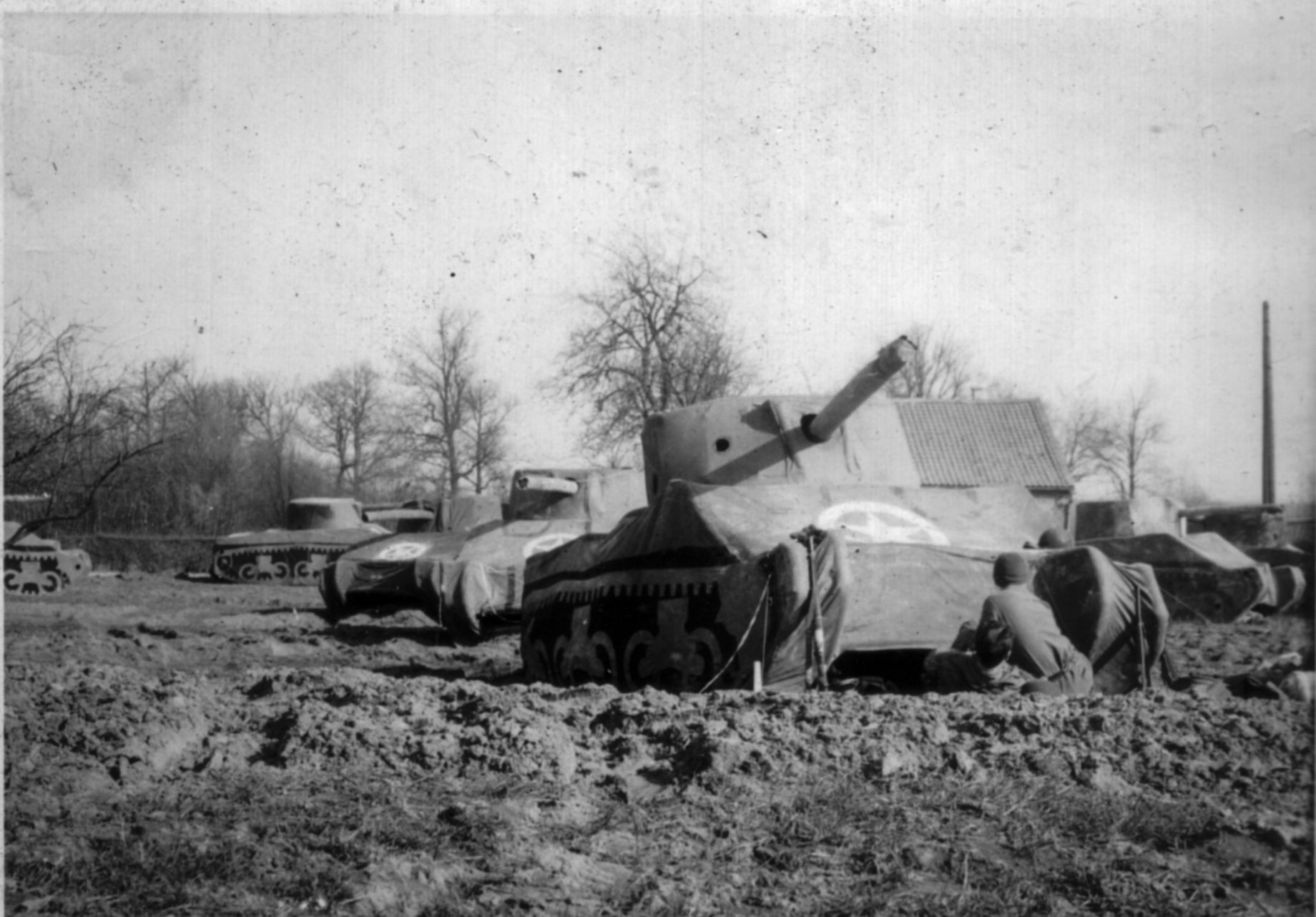A WWII Ghost Army was secret for decades. Now the artist soldiers will finally get their recognition
The secret army used inflatable tanks, trucks and planes, combined with sound effects, radio trickery, costume uniforms and acting

Their mission during World War II was a secret. With inflatable tanks, trucks and planes, combined with sound effects, radio trickery, costume uniforms and acting, the American military units that became known as the Ghost Army helped outwit the enemy.
Now, they are being awarded the Congressional Gold Medal.
Three of the seven known surviving members are set to attend the ceremony at the US Capitol on Thursday, including 100-year-old Seymour Nussenbaum of Monroe Township, New Jersey. Bernard Bluestein, 100, of Hoffman Estates, Illinois, and John Christman, 99, of Leesburg, New Jersey, are also set to attend.
“It was like putting on a big production,” Nussenbaum said. “We have had in some cases people impersonating generals, putting on a general's uniform and walking around the streets.”
Nussenbaum, who grew up in New York City, was studying art at the Pratt Institute before he was drafted and eventually joined a unit specializing in camouflage that was part of the 23rd Headquarters Special Troops.
“Our mission was to fool the enemy, to put on a big act,” said Nussenbaum, a painter who went on to have a career in commercial art.
The legislation to honor the military units with the Congressional Gold Medal — Congress' highest honor — was signed into law by President Joe Biden in 2022. That came after almost a decade of work by family members of the soldiers and Rick Beyer, a filmmaker and author who has helped bring their story to light after their mission was declassified in 1996. Beyer, president of the Ghost Army Legacy Project, produced and directed the 2013 documentary “The Ghost Army" and co-authored the 2015 book “The Ghost Army of World War II.”
“I just want to make sure it’s not forgotten," Beyer said. “I think it’s a great use of ingenuity, creativity on the battlefield.”
The Ghost Army included about 1,100 soldiers in the 23rd Headquarters Special Troops, which carried out about 20 battlefield deceptions in France, Luxembourg, Belgium and Germany, and around 200 soldiers in the 3133rd Signal Company Special, which carried out two deceptions in Italy.
Beyer said their missions, carried out near the front lines, likely saved thousands of American lives.
One of the biggest missions, called Operation Viersen, came in March 1945 when the 23rd Headquarters Special Troops' deception drew German units away from the point on the Rhine River where the 9th Army was actually crossing.
“They had hundreds of inflatables set up," Beyer said. “They had their sound trucks operating for multiple nights. They had other units attached to them. They had set up multiple phony headquarters and staffed them with officers who were pretending to be colonels.”
“This was an all-hands-on-deck affair and it was completely successful," Beyer said. “It fooled the Germans. They moved their troops to the river opposite where the deception was.”
In September 1944, the Ghost Army helped fill a gap in Gen. George Patton's line during an attack on the Germans in the French city of Metz.
“They end up holding this part of the line for eight days, which is really long in terms of doing a deception, trying to keep up appearances,” Beyer said.
Kim Seale of Dallas will be among the family members attending the ceremony. His father's work in the Ghost Army came as a surprise to him when — about six months after his father's death at the age of 84 in 2001 — he spoke to a Ghost Army member who was putting together a reunion.
“I said, ‘What do you mean, Ghost Army?’” Seale said.
“My Dad never talked about it," Seale said. “He kept the oath.”
He said his father, Oscar Seale, who was a captain, had told him that at one point during the war that he had transitioned from a tank division to serving as a courier. Seale said he now thinks that's when his father joined the Ghost Army.
“It’s been a 20-plus year journey of learning about the Ghost Army, learning about what my Dad did, learning about what the men did and just being amazed at that story,” he said.
Subscribe to Independent Premium to bookmark this article
Want to bookmark your favourite articles and stories to read or reference later? Start your Independent Premium subscription today.
